Scandal circles Swiss prosecutor at heart of FIFA case
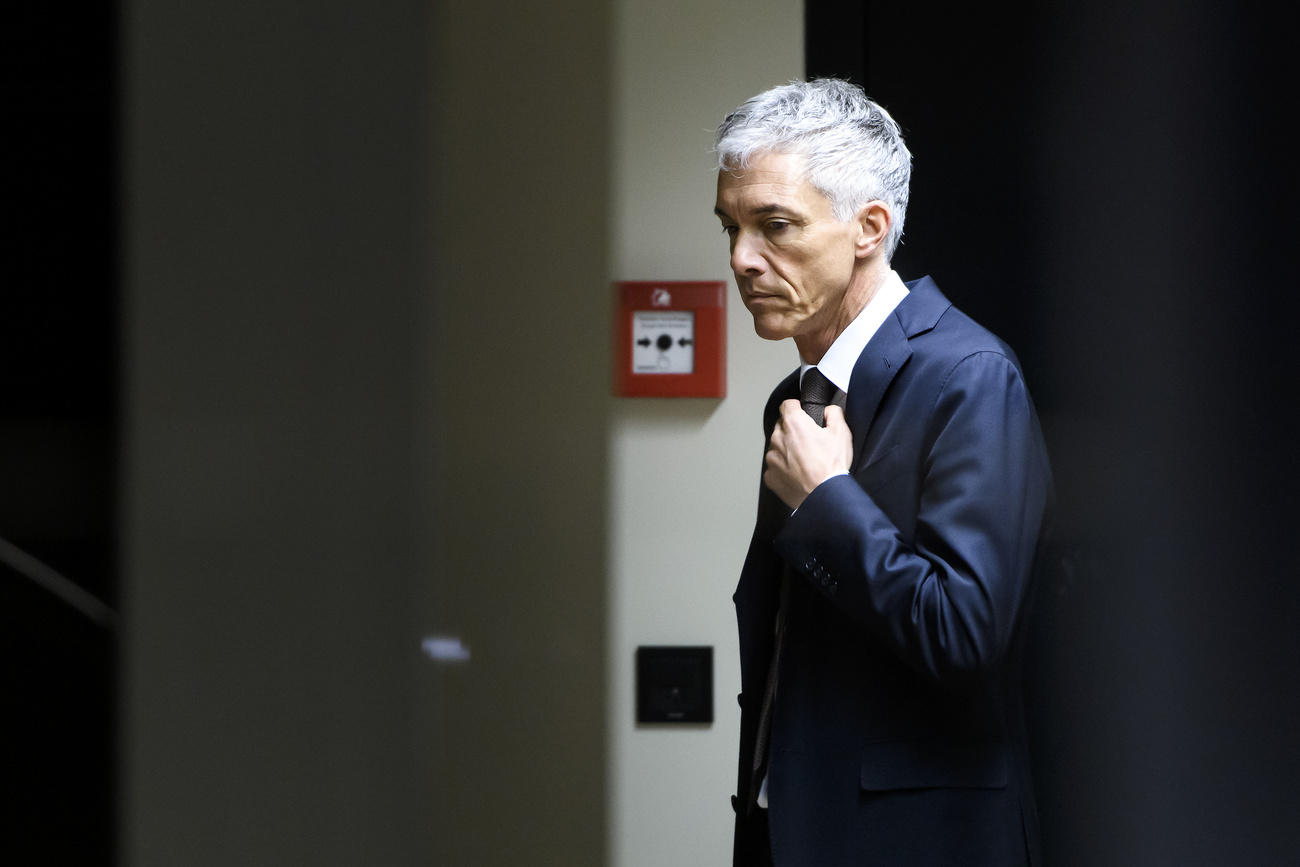
Meeting room three of the Schweizerhof hotel in Bern must be a forgettable place. Gianni Infantino, head of football’s world governing body FIFA, has no recollection of being there two years ago. His old friend, Rinaldo Arnold, a cantonal prosecutor, does not recall being there with him. And nor, apparently, does Michael Lauber, Switzerland’s federal prosecutor.
Perhaps because of such forgetfulness, Lauber is now fighting for his political survival, after Switzerland’s highest court ruled on Wednesday that not only had the meeting taken place – and two others before it – but that it had constituted a serious breach of protocol.

Lauber, the justices ordered, must recuse himself from his biggest case: the investigation into corruption in world football. The decision caps a crisis which has been brewing for weeks as details of Lauber’s off-diary meetings have slowly leaked out – in FIFA documents and as part of separate investigations into Arnold and the federal prosecutors’ work – sometimes directly contradicting earlier denials. Under Swiss law, prosecutors must scrupulously record all contacts they have with the subjects of their investigations.
The scandal has become a lightning rod for disquiet over Lauber’s broader work and threatens to cast a long shadow over Switzerland’s reputation as a reliable partner in international efforts to combat financial corruption.
“He’s now in a very serious position, that is clear,” said Min Li Marti, a member of the Swiss parliament’s legal affairs committee. “It could damage the confidence people have in the office of the federal prosecutor. I don’t see a way how he can get past this. He has a big problem with his credibility and authority.”
‘Compromised’
For the past eight years, the sharp-suited, media-savvy Lauber has been one of the most prominent global figures in the fight against white-collar crime – a testament to Switzerland’s role as a hub for illicit money – in numerous blockbuster cases. Within Switzerland, thanks to his deft political touch and initiative, Lauber has transformed the role and influence of his office.
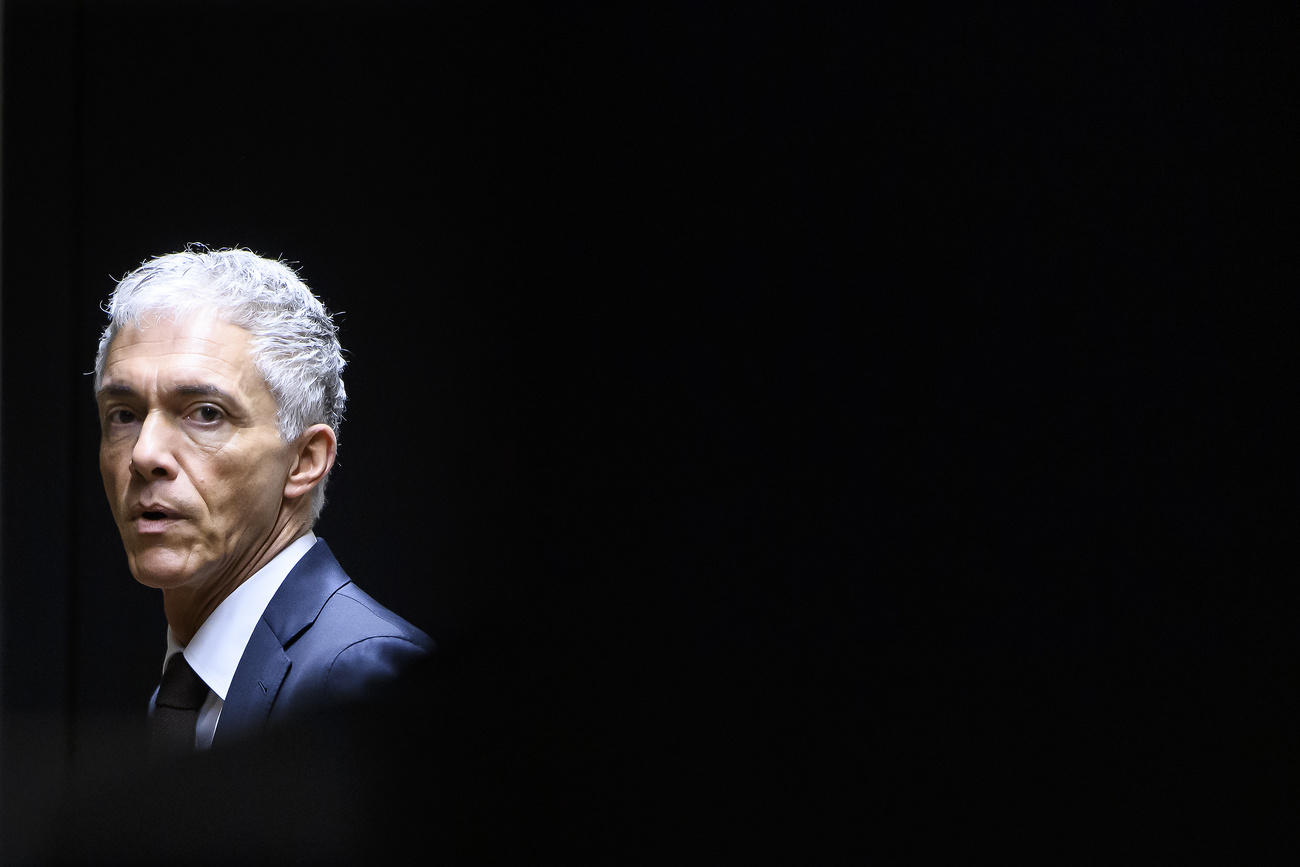
More
Swiss court orders attorney general to recuse over FIFA probe
According to a spokesperson for the federal prosecutor, the federal court’s decision will not stop work into the FIFA case. Lauber’s economy with detail in recent weeks has also deepened concern over his broader caseload.
“FIFA gets everyone excited, but Lauber has been doing the same kind of thing in all his other investigations,” said Mark Pieth, professor of criminal law at the university of Basel. “Now gangsters and financial criminals of all kinds are going to be thinking about raising the allegation that Lauber is compromised. In several cases the threat [of collapse] is quite real.”
Pieth points to two in particular: the Federal Prosecutor’s investigation into the global Odebrecht bribery case embroiling Brazil’s national oil company, Petrobras, and the multibillion-dollar embezzlement scandal at 1MDB, the Malaysian sovereign wealth fund. In both cases, Switzerland was alleged to be a key centre for routing and depositing legal funds.
Lauber is reported to have met subjects under investigation without taking detailed protocol notes – even flying to Brazil and Dubai to do so. “These are crucial cases for Switzerland’s reputation,” said Pieth. “And it now looks like they are doomed.” The Federal Prosecutor’s office has previously dismissed suggestions that other investigations are also now stalling.
Lavished with gifts
Lauber’s defenders argue that such meetings are essential to help oil the legal machinery even if, at times, they have fallen foul of technical standards. Lauber’s role is political as well as legal, they point out, and he should have the freedom to do his job as he sees fit. A spokesperson for the Federal Prosecutor said that handling “increasingly complex and comprehensive cases in a globally networked environment” required the prosecutor to meet individuals in Switzerland and abroad.
But critics say such practices abet one of the less salubrious aspects of Switzerland’s notoriously conservative political process: the degree to which rules often play second fiddle to personal relationships in the small, clubbable world of cantonal politics.
“For Lauber, this stuff has become part of his normal procedure, of how he has taken on the job. But it’s totally the opposite of what it should be,” said one senior Zurich-based criminal lawyer, who has dealt with Lauber for years. “Secret meetings with who knows – states, agents, accused, plaintiffs – and all no record?”
Beyond Switzerland’s borders, too, Lauber’s freewheeling diplomatic approach has raised eyebrows – particularly when it comes to his close relationship with Russia’s federal prosecutor and a Putin-loyalist, Yury Chaika.
A visit in March 2016 – widely reported at the time – drew the most criticism. On his arrival in Russia, Lauber was lavished with gifts by Chaika. He was praised for properly declaring and giving up the gifts, but the timing was bad. Swiss prosecutors had, the week before, decided against pursuing a high-profile case against Chaika’s son, brought by anti-corruption campaigners. A spokesperson for Lauber stressed the decision to drop the case was taken entirely by regional authorities in Lugano, and based on a lack of evidence to warrant investigation.
High support
Despite such problems, Lauber still enjoys high support among Swiss parliamentarians. “He is a very good communicator,” said Marti. “People trusted him as a new beginning for the federal prosecutor’s office. It’s not clear to me whether he has the support of parliament still yet or not.”
A vote is due in September to decide his future. Lauber’s current term in office is coming to an end and he seeks another, which parliament must approve.
In the meantime, he has been fighting his corner. In mid-May, he castigated his critics for a “full frontal assault on me personally”. “In my opinion,” he continued, “it’s also an infringement of the independence of the office of the attorney-general.”
Copyright The Financial Times Limited 2019

In compliance with the JTI standards
More: SWI swissinfo.ch certified by the Journalism Trust Initiative
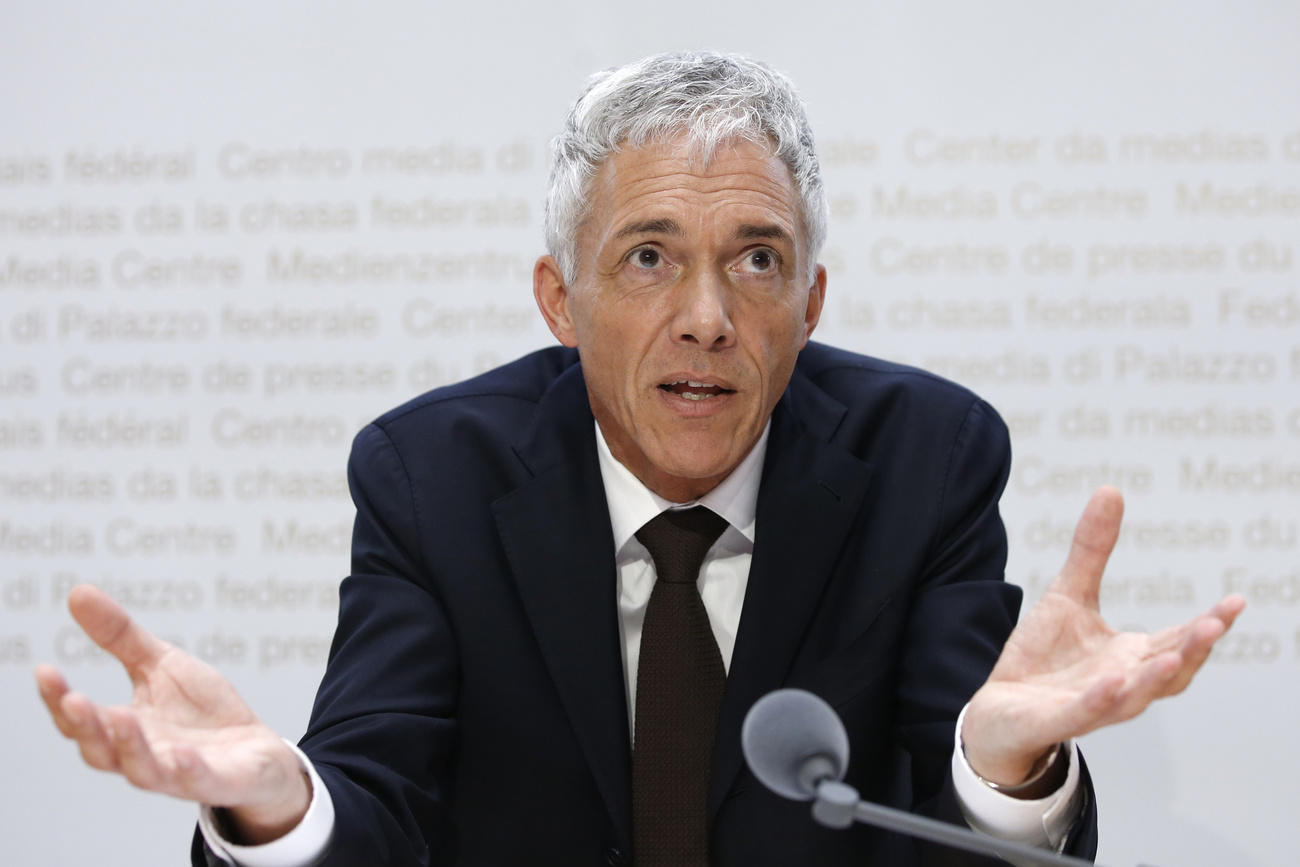
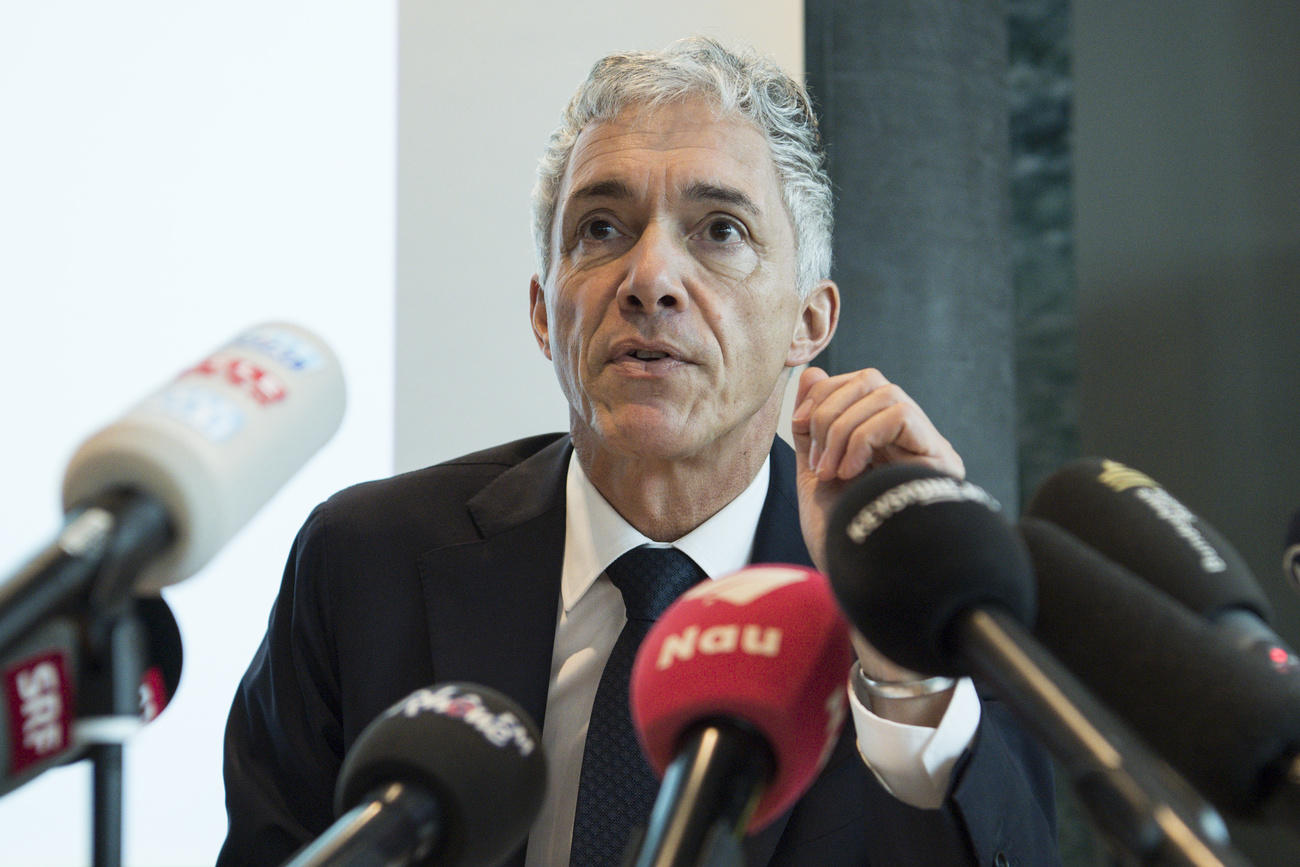
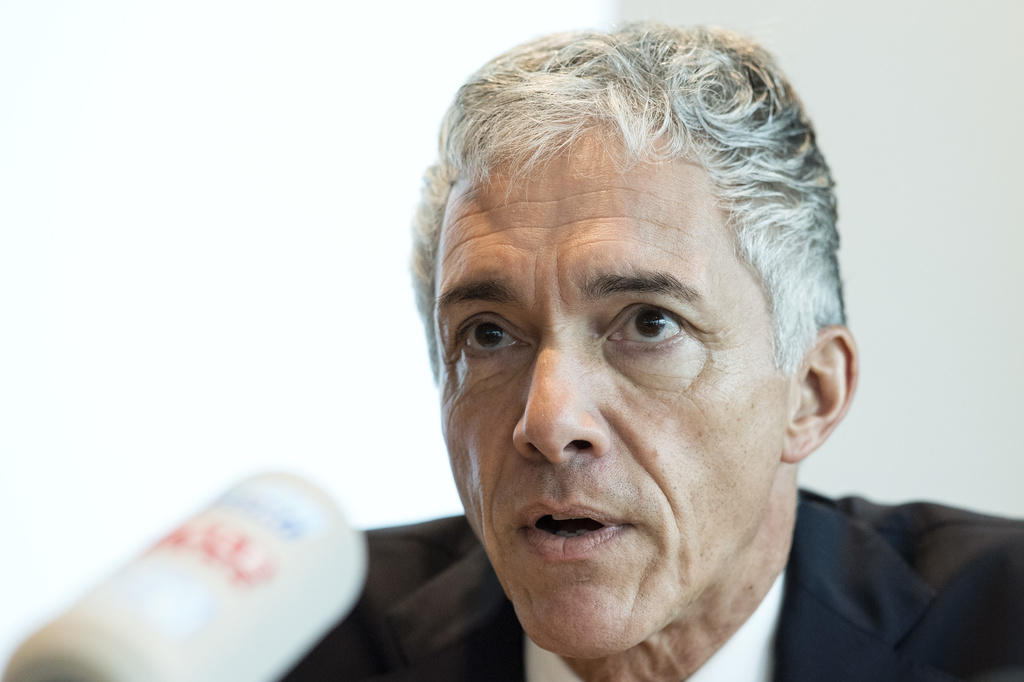
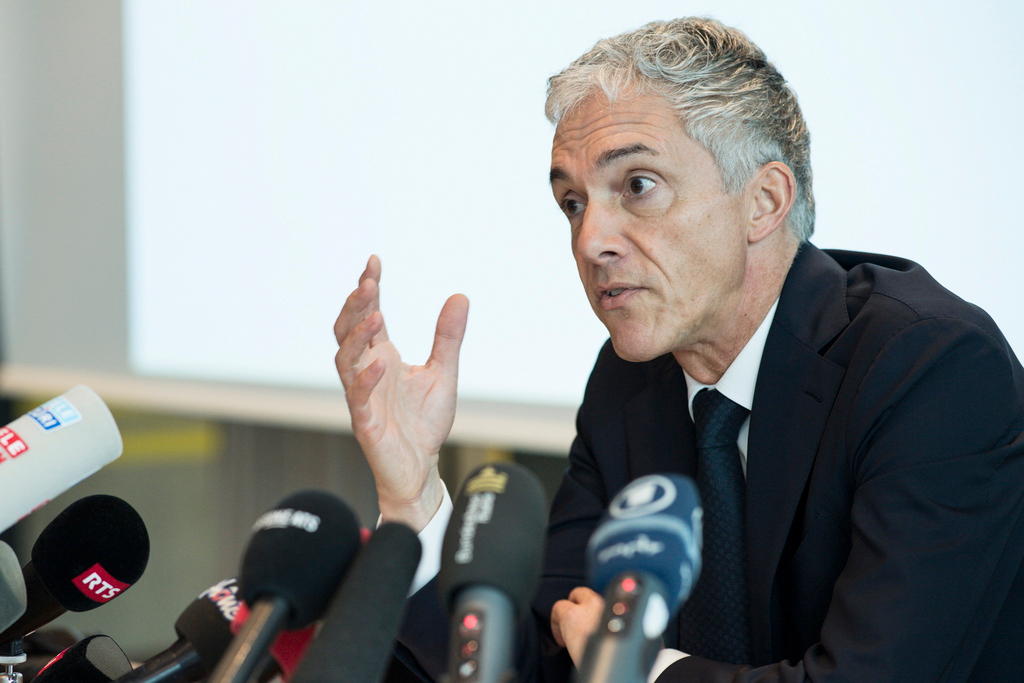
You can find an overview of ongoing debates with our journalists here. Please join us!
If you want to start a conversation about a topic raised in this article or want to report factual errors, email us at english@swissinfo.ch.